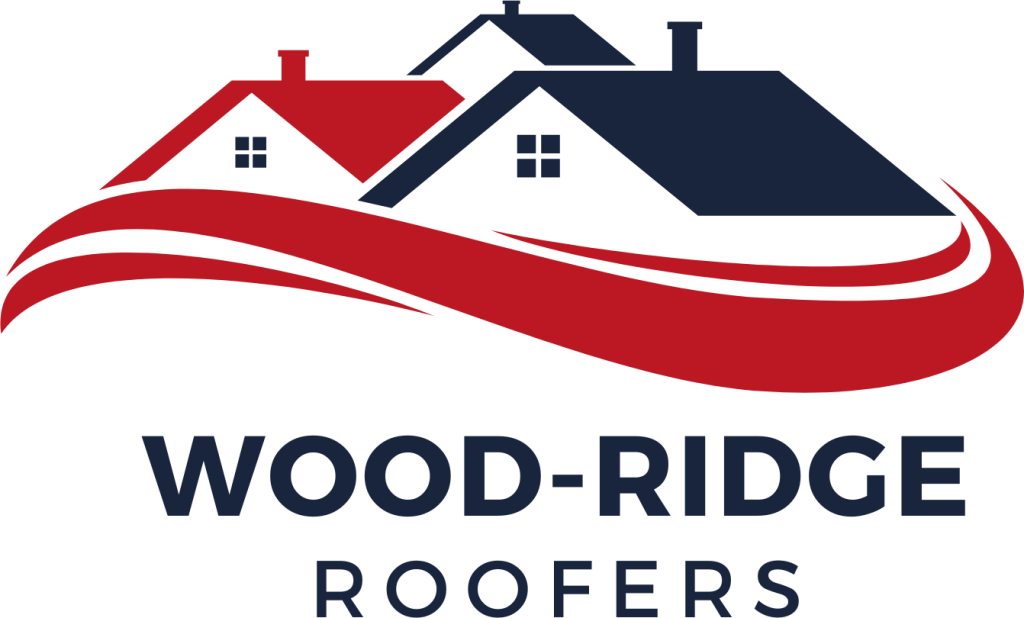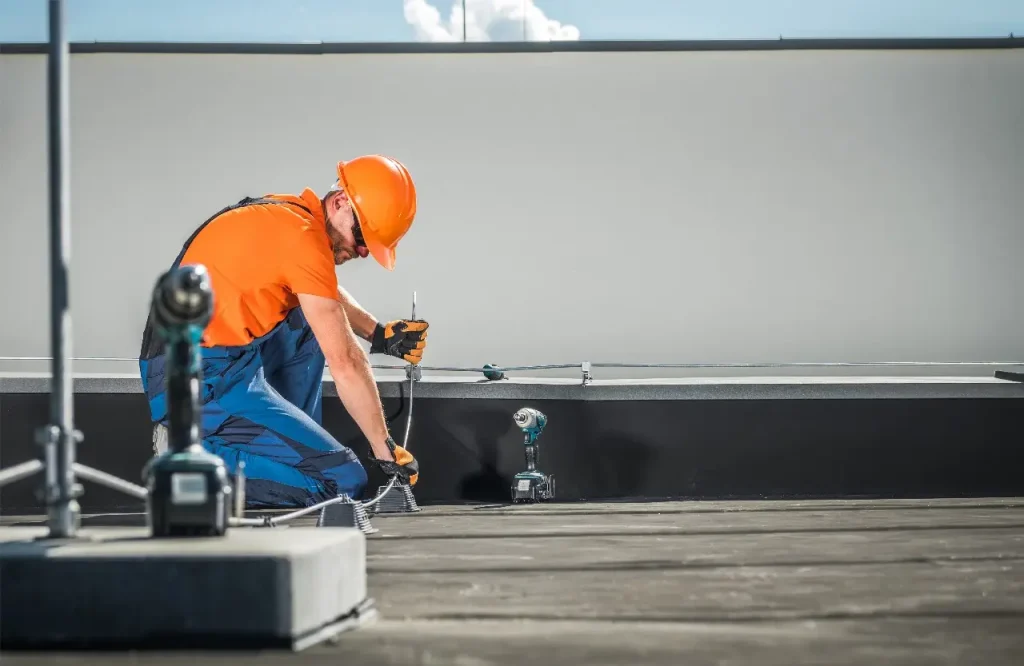Flat roofs have become a popular choice for homes and businesses in New Jersey, thanks to their modern look, cost-effectiveness, and versatility. Whether you’re a homeowner looking to update your property or a business owner searching for a practical roofing solution, flat roofs offer numerous benefits. However, New Jersey’s unique climate and weather conditions mean that choosing the right materials and maintenance practices is crucial. In this comprehensive guide by Wood Ridge Roofer, we’ll cover everything you need to know about flat roofs in New Jersey, including their benefits, best materials, maintenance tips, and how our expert services can help you.
1. Why Are Flat Roofs Popular in New Jersey?
Flat roofs are becoming increasingly popular in New Jersey for several reasons:
-
Cost-Effective Installation: Flat roofs are generally quicker and easier to install than pitched roofs, reducing labor costs. This makes them an affordable choice for both residential and commercial properties.
-
Energy Efficiency: Many flat roofing materials are designed to reflect heat, making them energy-efficient and ideal for New Jersey’s varying climate. This means lower energy bills, as your home or business will stay cooler in the summer and retain heat during the winter.
-
Modern Aesthetic: Flat roofs offer a sleek and contemporary appearance that’s perfect for modern architectural designs. They provide a unique look that stands out in neighborhoods across New Jersey.
-
Extra Usable Space: Flat roofs can be transformed into functional spaces, such as rooftop gardens, outdoor patios, or solar panel installations, making them an excellent choice for homeowners and business owners who want to maximize their property.
2. Understanding New Jersey’s Climate and Its Impact on Flat Roofs
New Jersey experiences a wide range of weather conditions, from hot, humid summers to cold, snowy winters. These climate variations can impact the performance and lifespan of your flat roof. Here’s how New Jersey’s weather affects flat roofs:
-
Heavy Snow and Ice: During winter, snow and ice can accumulate on flat roofs, leading to potential water pooling and added weight. Choosing a durable roofing material and ensuring proper drainage is essential to avoid structural damage.
-
Rain and Storms: New Jersey’s frequent rainstorms can lead to water pooling on flat roofs if drainage systems aren’t well-designed. It’s crucial to have a properly installed flat roof with high-quality waterproofing to prevent leaks and water damage.
-
Heat and UV Exposure: In the summer, flat roofs are exposed to intense heat and UV rays, which can cause certain materials to deteriorate over time. Reflective roofing materials, such as TPO or PVC, can help mitigate heat absorption and extend your roof’s lifespan.
3. Best Flat Roofing Materials for New Jersey Homes and Businesses
Choosing the right roofing material is crucial for ensuring your flat roof can withstand New Jersey’s climate. Here are some of the most popular flat roofing materials we recommend:
-
EPDM (Ethylene Propylene Diene Monomer): This rubber membrane is highly durable, weather-resistant, and can handle extreme temperatures, making it an ideal choice for New Jersey’s fluctuating climate. It’s also relatively easy to repair and maintain.
-
TPO (Thermoplastic Olefin): TPO is a single-ply roofing membrane known for its energy efficiency and resistance to UV rays, punctures, and chemicals. It’s an excellent option for those looking to reduce energy costs and maintain a cooler building in the summer.
-
PVC (Polyvinyl Chloride): PVC roofing is durable, flexible, and offers excellent resistance to fire, chemicals, and weathering. Its reflective properties make it energy-efficient, and it’s well-suited to handle New Jersey’s hot summers and cold winters.
-
Modified Bitumen: This multi-layered roofing material is highly resistant to harsh weather conditions, including heavy snow and rain. Its durability makes it an excellent choice for flat roofs that need extra protection in New Jersey’s climate.
-
Built-Up Roofing (BUR): Composed of multiple layers of tar and gravel, BUR is a tried-and-tested option that offers excellent waterproofing and protection against the elements. It’s ideal for properties that need a strong, durable flat roofing system.
4. Flat Roof Maintenance Tips for New Jersey Homeowners
Maintaining your flat roof is essential for prolonging its lifespan, especially with New Jersey’s weather conditions. Here are some maintenance tips from Wood Ridge Roofer:
-
Regular Inspections: Schedule regular inspections, especially after heavy storms or snowfall, to check for signs of damage, such as cracks, blisters, or pooling water.
-
Keep It Clean: Remove debris, leaves, and dirt from your flat roof to prevent clogging the drainage system, which can lead to water pooling and damage.
-
Check for Leaks: Flat roofs are prone to leaks, so it’s important to inspect your roof’s seams, flashing, and membrane regularly. Address any leaks immediately to prevent further damage.
-
Trim Overhanging Branches: Trees with overhanging branches can cause damage to your flat roof during storms. Regularly trim nearby trees to prevent branches from falling onto your roof.
-
Clear Snow and Ice: During winter, use a roof rake to remove excess snow from your flat roof to prevent water pooling and weight-related damage.
5. Common Flat Roof Problems in New Jersey
Flat roofs can encounter specific issues, especially in New Jersey’s diverse climate. Here are some common problems to watch out for:
-
Ponding Water: Due to their flat design, water can pool on the surface, leading to leaks and damage. Ensure your roof has adequate drainage and slight slopes to prevent this issue.
-
Cracking and Blistering: Temperature fluctuations can cause flat roofing materials to expand and contract, leading to cracks and blisters over time. Regular maintenance and choosing flexible, high-quality materials can help prevent this.
-
Leaks and Moisture Damage: Leaks are more common on flat roofs due to water pooling. Regular inspections and using waterproof membranes can help prevent moisture damage.
-
Shrinkage: Some flat roofing materials, like EPDM, can shrink over time, causing damage to the seams and flashing. Regular maintenance and prompt repairs can address this issue.
6. Why Choose Wood Ridge Roofer for Your Flat Roof in New Jersey?
Wood Ridge Roofer is your trusted partner for all your flat roofing needs in New Jersey. Here’s why:
-
Expert Knowledge: Our team has extensive experience with flat roofing systems and understands the unique challenges posed by New Jersey’s climate.
-
Quality Materials: We only use the best materials to ensure your flat roof is durable, energy-efficient, and weather-resistant.
-
Professional Installation: Our skilled roofing professionals provide expert installation, ensuring your flat roof is built to last.
-
Comprehensive Services: We offer installation, repairs, maintenance, and inspections, making us a one-stop shop for all your flat roofing needs.
Conclusion
Flat roofs offer numerous benefits for New Jersey homes and businesses, but it’s crucial to choose the right materials and stay on top of maintenance to ensure they stand up to the state’s unique climate. At Wood Ridge Roofer, we have the expertise and experience to help you install, maintain, and repair your flat roof, providing you with a roofing solution that’s both durable and cost-effective.
Ready to invest in a flat roof that’s built to last? Contact Wood Ridge Roofer today for a consultation, and let us help you find the perfect roofing solution for your New Jersey property!

